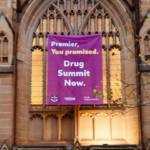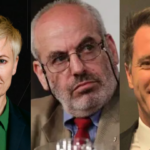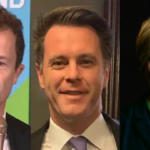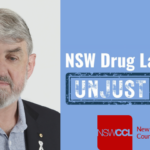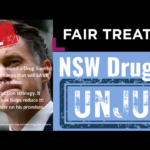NSW Government Re-Commits to Failed Zero Tolerance Approach Ahead of Drug Summit
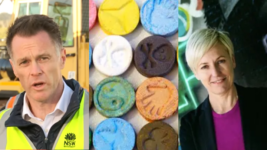
NSW is so ready for drug law reform that it hurts to watch a party like NSW Labor come to power, with many members, just like all the NSW Greens, having been actively campaigning on the need for reform for years, only to then have a leader at the helm opposed to the want of the community.
NSW Labor announced the NSW Drug Summit would be held over four days in October and December, and those passionate about it praised NSW premier Chris Minns for doing this, when it didn’t deserve any as it was what he was expected to do post-election but had been stalling on.
On being asked about why Minns had postponed the drug summit indefinitely and straight out refused contemplation of drug decriminalisation late last August, NSW MLC Cate Faehrmann put it down to the Murdoch press pushing him into a corner, as he’d promised otherwise preelection.
But last week, when the ABC asked him about the parliamentary cannabis inquiry exploring decriminalisation, he now claims it was an election promise to deny such reform, and the Janus premier then went on to shoot down a proposal to roll out pill testing to save lives pre-summit.
Drug law reform is not just about allowing the large numbers of the constituency who partake in illicit drug possession and use to enjoy themselves without fear of punishment, as it’s more so to do with those who develop a dependency, can’t deal with it and yet, are punished instead of being given social support.
So, why should we suffer under a government that could save lives and money because its leader, who obviously has never taken a look at the evidence because it’s clear and is therefore making a moral choice on behalf all of us, doesn’t spend Sunday mornings in recovery mode.
In Minns we trust
“We went to the election campaign promising we wouldn’t change the law in relation to decriminalisation and we’re not going to do that,” premier Minns told the ABC on 1 August. “I’m not going to break an election commitment.”
But according to Faehrmann, the preelection commitment was to hold the NSW Drug Summit and let the experts consider the changes that are needed, while nothing was said about then having to take recommendations from the summit to the next election.
The NSW Labor Platform 2023, which was decided upon preelection in 2022, states that “NSW Labor will hold a drug summit of experts and key stakeholders upon forming government”, and the document makes no commitment to deny the harm reduction policy of drug decriminalisation.
Yet, when the ABC asked the premier about drug decriminalisation last week, it was in reference to the cannabis inquiry, although his answer was worded in a manner that not only ruled out cannabis decriminalisation, but it too included all illicit substances.
This Liberal leader in Labor clothing, however, is on the record as having attended a 2019 meeting of drug law reform-minded Labor MPs and stating that it was “time for Labor to have a big debate that includes a commitment to legalising this drug”, and he argued for this over decriminalisation.
But the premier started revealing his clear objections to drug law reform in April last year, when he said cannabis reform was off the table, and his prior comments made in 2019 were before cannabis prescriptions became widely available. Mind you, medicinal cannabis was legalised in 2016.
And Minns did add that the summit could change this. But then last August, when Murdoch quizzed him on forthcoming ACT drug decriminalisation, he declared he had “no mandate” to forge such reform. And it was then announced that the drug summit was being delayed to some future times.
At neither of these points of post-election questioning did he raise the pre-election commitment not to consider drug decriminalisation, which is the commitment that he dare not break now, and this is because it appears to have only become a pre-election commitment last week.
No silver bullet shot down
“It’s concerning that the premier is already shooting down any key harm reduction measures before the drug summit,” Faehrmann continued, as not only did he rewrite history last week, but this week he ensured that her private members pill testing bill was shot down in flames.
The Pill Testing Trial Bill 2023 was voted down by upper house majors and was supported by Greens members Faehrmann, Sue Higginson, Abigail Boyd and Amanda Cohn, along with Legalise Cannabis MLC Jeremy Buckingham, Libertarian MLC John Ruddick and Independent MLC Martin Taylor.
So, whilst the NSW Drug Summit is to convene in October and December, the outcome of parliament this week will mean that pill testing will not be applied in NSW, this summer festival season, whilst the lifesaving service will be operating in the ACT, Victoria and Queensland.
Faehrmann told Sydney Criminal Lawyers that NSW natural resource minister Courtney Houssos, who spoke on behalf of the government during the bill’s debate, had “acknowledged that pill testing is a measure of harm minimisation”, which gives Cate hope it may be looked at seriously at the summit.
“This was an opportunity for all sides of politics to come together to support a critical harm reduction measure that has been recommended by experts for years,” the Greens harm minimisation spokesperson continued. “Instead, we’ve got more delays and inaction putting more lives at risk.”
“Labor has said it wants to wait until the drug summit before allowing pill testing or even discussing many other harm reduction measures,” which, she added, means “lives will be put unnecessarily at risk due to a lack of direction and leadership from a government paralysed by shock jock opinions.”
Where others fear to tread
Minns clearly didn’t insert the drug summit commitment into the Labor platform, but he did speak boldly and progressively about at least cannabis reform half a decade ago, and now after a sustained campaign forced his hand on summit dates, he’s back to knocking down the potential for reform.
The premier’s favourite mantra to deny drug reform is that he has “no mandate”. But does that mean the advice of the experts at the 2024 NSW Drug Summit would provide him with that mandate to reform the hideously harmful and deadly approach to illicit drug use that he’s considers is best?
Or will Minns go searching for that mandate in relation to summit outcomes at the next election, as Faehrmann suggests it sounds as if he’s contemplating doing?
Indeed, it would be quite a surprise if the premier, after doggedly denying drug law reform would champion it at the next election.
“Bob Carr didn’t have to do that after the 1999 NSW Drug Summit with the medically supervised injecting centre, he just got on with it,” Faehrmann recalled, in reference to the late 90s summit that was groundbreaking in its outcomes and led the then Labor premier to roll them out immediately.
“It’s a pity that Chris Minns hasn’t demonstrated the same steely resolve that Bob Carr had to just get good policies in place,” the Greens MLC added.
But the worrying aspect to Minns’ behaviour is that he just may be showing his “steely resolve” as an advocate of drug prohibition committed to blocking measures known as drug harm minimisation, and instead continuing on with the Sunday school line of “just say no to drugs kids and praise be”.
Faehrmann further pointed out that the Uniting Medically Supervised Injecting Centre Kings Cross would likely have been voted down if Carr took it to an election. However, he made the decision to implement it on behalf of the public. It has saved thousands of lives, and he’s never looked back.
“Nothing should be off the table when you are walking into something that is meant to be informed and evidence-led,” the Greens MLC continued, as she referred to Minns’ most recent decriminalisation comment. “What’s the point of hearing evidence if you are going to ignore it?”
“The question is how long will it take to implement any recommendations from the summit, if indeed, Chris Minns has the guts to do it?” Faehrmann posed in conclusion.


